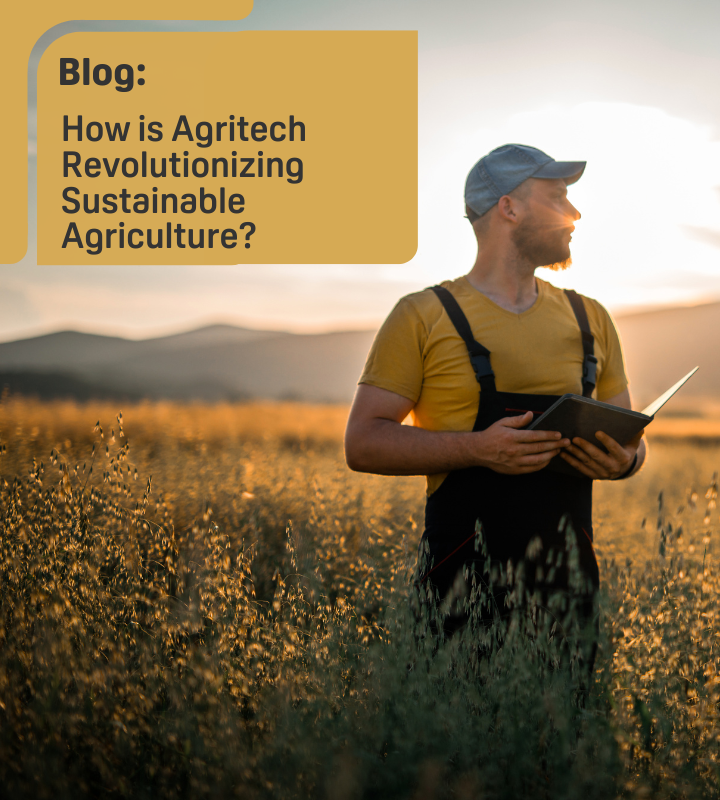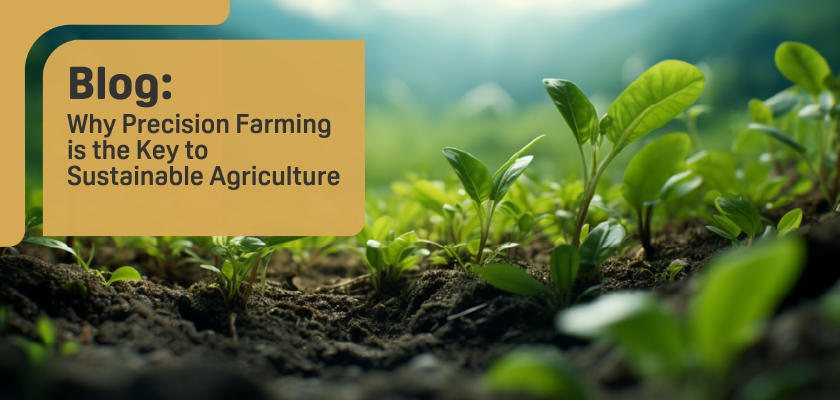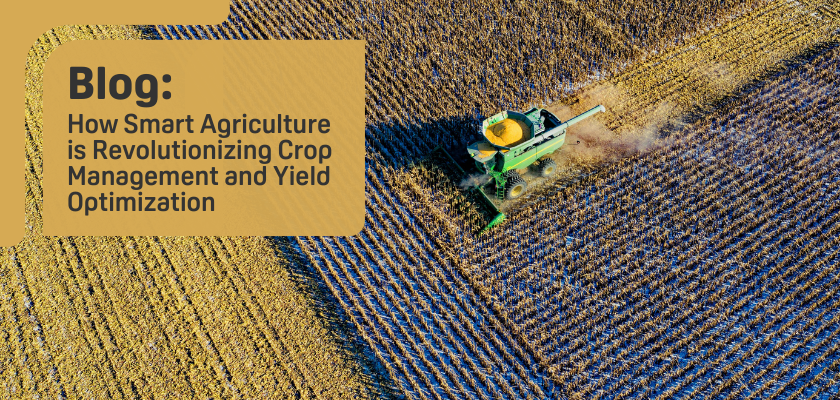

How Agritech is Revolutionizing Sustainable Agriculture: The Future of Farming
Agritech is revolutionizing sustainable agriculture by integrating advanced technologies like AI, IoT, and big data analytics, enhancing crop productivity and reducing the environmental impacts of traditional farming. Doktar, a leader in this field, offers products like Filiz, PestTrap, and CropMap, which utilize these technologies to provide real-time insights and optimize farming operations.
Published on 15 May 2024
Agritech, or agricultural technology, is transforming the farming landscape by incorporating advanced technologies such as artificial intelligence (AI), the Internet of Things (IoT), and big data analytics. This innovation wave helps increase crop productivity, manage resources more efficiently, and reduce the environmental impact of traditional farming practices. Farmers can achieve higher yields, optimize input usage, and sustainably manage their agricultural practices by leveraging these technologies. Doktar, an agritech pioneer, leverages such technologies in products like Filiz, PestTrap, and CropMap to offer actionable insights and optimize farming operations.
What is agritech business/startup?
The rise of agritech companies and startups highlights a shift towards more innovative and sustainable farming solutions. These enterprises are looking to revolutionize agriculture with cutting-edge technology and aim to address crucial issues like food security, climate change, and resource scarcity. Through novel agritech solutions, these companies offer tools that improve decision-making, enhance crop health monitoring, and provide precise weather forecasting to optimize agricultural outputs. Doktar stands out with its suite of products, including the Filiz series of agricultural sensors and the PestTrap pest detection system, which are crucial for real-time monitoring and agricultural decision-making. Their integration of AI and IoT exemplifies how agritech businesses are pivotal in advancing sustainable farming practices.
Practical Applications of Agritech in Farming
Adopting agritech involves using various tools and applications that transform conventional farming into precision agriculture. Sensor-based systems can monitor soil moisture and nutrients, while satellite imagery surveys and maps fields with high precision. Additionally, the SoilScanner, a digital soil analysis device, provides instant, reliable soil data that enables farmers to determine the precise nutrient needs of their crops. This facilitates a more accurate application of fertilizers, enhancing soil health and crop yields. Smart irrigation systems can significantly reduce water usage. Tools like Orbit, a field scouting app from Doktar, allow farmers to monitor crops remotely, analyze soil health, and manage resources effectively. For instance, Orbit's Variable Rate Application (VRA) tool aids in productivity zone categorization, ensuring optimal resource utilization and reduced wastage. These technologies allow for more targeted crop management, minimizing waste and improving farm efficiency.
Environmental and Economic Benefits of Agritech
Integrating agritech into farming practices offers significant environmental benefits, such as reduced use of water, pesticides, and fertilizers, which in turn minimizes pollution and soil degradation. Economically, agritech reduces operational costs and enhances yield efficiency, providing substantial cost savings and increasing profitability for farmers. Moreover, by enabling more precise and efficient resource management, agritech supports sustainable agricultural practices crucial for long-term environmental health.
Doktar’s offerings are exemplary in showcasing the utility of agritech products. Our CropMap service, with capabilities like field boundary detection and crop type monitoring, provides essential data for market analysis and operational optimization. By offering tailored agricultural solutions with excellent accuracy, Doktar is at the forefront of transforming agricultural data into valuable market and operational insights, thereby enhancing the profitability and sustainability of farming ventures.
Future Trends in Agritech
As we look towards the future, agritech is set to become even more integral to agriculture. Innovations in drone technology, further advancements in AI, and more sophisticated data analytics will likely make farming more precise and resource-efficient. Doktar continues to innovate, ensuring products like CropMap and Orbit stay at the cutting edge of technology, thus driving the future of farming toward more sustainable and productive outcomes.
In conclusion, agritech transforms farming practices and revolutionizes the agricultural value chain. From enhancing crop yields to promoting sustainable practices and improving economic outcomes, agritech companies like Doktar are pivotal in shaping the future of agriculture. As this sector evolves, it promises a more efficient and sustainable agricultural system globally.
For those interested in exploring how Doktar's innovative solutions can transform your agricultural practices, visit our website for detailed information on all our products. Stay updated with the latest developments by following us on Instagram and LinkedIn, where we share insights, tips, and updates about our technologies and their impact on modern farming.

Agriculture Technology and Data-Driven Harvests: The New Frontier in Innovation
Agriculture technology, or agritech, is revolutionizing farming by integrating advanced tools like AI, drones, IoT, and precision agriculture. Companies like Doktar are leading this shift, enabling farmers to optimize operations, improve yields, and enhance sustainability. Through data-driven solutions, farmers can reduce resource use, boost productivity, and secure sustainable harvests.

Why Precision Farming is the Key to Sustainable Agriculture
Precision farming is a modern agricultural approach using data-driven technologies like sensors, AI, and satellite imagery to optimize crop management. It enhances resource efficiency, reduces waste, and increases productivity by enabling tailored care for different field zones. This promotes sustainability by lowering environmental impacts, improving yields, and cutting operational costs.

How Smart Agriculture is Revolutionizing Crop Management and Yield Optimization
Smart agriculture integrates technologies like IoT, AI, and big data to optimize crop management, increase yields, reduce resource waste, and enhance sustainability. Tools like Doktar’s Filiz and PestTrap provide real-time data, enabling farmers to make informed decisions, mitigate risks, and adopt more efficient, eco-friendly practices in modern farming.
